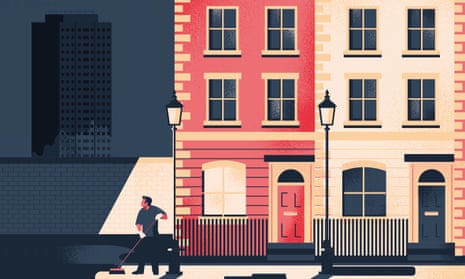I will never forget the sight that met me as I emerged from Latimer Road tube station that day. A vision of hell. A smouldering, charred tower of death rising into the west London sky, surrounded by streets that were plastered with missing person signs, left by the bereft and the brokenhearted.
That week it briefly felt as though Grenfell Tower was a huge moment in our national life – coming days after a general election that barely touched upon the issues that this burning building threw into sharp relief.
For a few days in June we couldn’t look away from Grenfell Tower and what it said, silently but so powerfully, about the state of our nation. This atrocity forced our collective consciousness to consider things that for too long we had been too happy to ignore – the state of social housing, the human cost of the creeping privatisation of services previously carried out by the state, the atrophy of local government in the face of budget cuts, together with rampant commercialisation and gentrification masquerading as regeneration.
Then something changed. Within a couple of days the dog whistle sounded in social media, in below-the-line comment sections and in parts of the broadcast and print media. Grenfell Tower residents were illegal immigrants, unwelcome, the underclass. An atrocity should not serve as a national dividing line, but it did; and traumatised survivors had to watch as the nation retreated into tribal echo chambers.
The media has traditionally done little to represent working-class people, and I have grown tired of correcting journalists who called those who lived in Grenfell “poor”. The survivors I have met include teachers, nurses and small-business owners. In truth, many journalists – as well as the leader of the council in which Grenfell Tower lies – have never lived, and could never imagine living, in a tower block or in social housing.
When it comes to housing, our national psyche has cast the “social” in social housing as a dirty word, while the “market” in the housing market has come to reign supreme. In a world of right to buy, buy to let, help to buy, buying off-plan, marketing suites and section 106 (affordable housing obligations for local authorities), housing has come to be seen as a for-profit asset rather than a social good.
Grenfell Tower was overseen by a local authority that seems to have forgotten how to do civic. Maybe this was the natural outcome of what David Cameron meant by “big society”, where philanthropy and charity were supposed to replace an active state. We were presented with an authority that appeared to wear its hands-off approach as a badge of honour, holding hundreds of millions of pounds in reserves while retreating from its role at the heart of the community – apart from ensuring the bins were collected and the streets were cleaned.

What happened in June revealed a nation where the social contract between the state and the individual had broken down, with the concept of a collective society eroded. Not only do our councils no longer build homes, they also outsource responsibility for their management or upkeep. Our fire services no longer ensure that dwellings are safe from the threat of fire – landlords can simply get a certificate from a private inspector.
As regeneration becomes gentrification and mixed communities cease to exist, elected representatives take decisions based on how properties appear when viewed from the homes of the wealthy, not on the safety of the families who remain in social housing. An array of local and national state bodies ignored the warnings of Grenfell residents, and of fire experts who urged successive housing ministers to take action following the Lakanal House fire in 2009 in south London.
As a country we take pride in our work in international development, disaster management and nation building. It is often British NGOs that are first responders on the ground in war-torn nations or after natural disasters; yet we failed to look after our own in the nation’s richest borough. There is no getting away from the fact that this is a dark chapter in our history.
What strikes me when I speak to Grenfell survivors is the lack of dignity and humanity in the way they have been treated. What was left of Grenfell Tower was ransacked – despite its status as a crime scene and the supposed police protection. It is not right that parents are sharing rooms with their teenage children and that the bereaved have no privacy, no place to call their own and no place to grieve. I have been on the government’s case about the failures to rehouse the survivors, but they don’t just need a house, they need a home.
Next year the long search for justice will go on for the Grenfell survivors and the families of those who lost their lives. They have been told to place their trust in the very same state that failed them so gravely. But what does justice mean?
For most people it means putting those responsible for the horror in the dock in the Old Bailey, on trial for gross negligence manslaughter. Anything short of that will be a whitewash.

